BETTY BUCKLEY LOVES NEW 'CARRIE' MUSICAL
SAYS UPCOMING SHOW IS MORE FOCUSED, BUT LESS DANGEROUS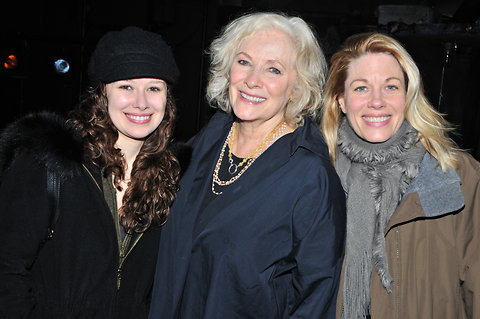
The MCC Theater's new Off Broadway musical version of
Carrie officially opens March 1st, and has been in previews for the past couple of weeks.
Betty Buckley, who played the gym teacher Miss Collins in the
Brian De Palma film, also played Carrie's mother in the 1988 Broadway musical version that has become the stuff of legend. Buckley is pictured above with the stars of the new version,
Molly Ranson, who plays Carrie, and
Marin Mazzie, who plays her mother. Buckley told
the New York Times' Patrick Healy that she "completely enjoyed" the new production, and is thrilled for the team that put it together: composer
Michael Gore, lyricist
Dean Pitchford, and book writer
Lawrence D. Cohen, the latter having previously adapted
Stephen King's novel for De Palma's film. "I always felt their work in this show was ahead of its time, really provocative and very passionate theater,” Buckley told Healy of the team that also worked on the 1988 version. “I’m really proud of the work we did back then, and I’m a huge fan of these guys. I always wanted the score and the story to be seen for its intensely, emotionally moving qualities, and I think you can see those qualities in this production.” Healy's article continues:
The major difference between the new Carrie and the Broadway production, in Ms. Buckley’s view, is that the current director, Stafford Arima, has created a “homogeneity” in tone, design, and performance that makes for “focused, consistent, understandable storytelling.” “The problem with the original production,” she continued, “was that the directorial concept was very abstract, and the director Terry Hands thought the piece resonated as Jacobean drama. He achieved that through some very, very bloody scenes. Linzi [Hateley] and I presented a psychologically accurate portrayal of a deeply, emotionally disturbed mother and daughter.”
Ms. Buckley described the Off Broadway revival as “the PG-13 version of the original,” then added: “I would love this production to be more dangerous. I think that’s what we had going on that made it resonate for all these years. It’s not about adding camp to this production, but about adding even more truth. The show is perfectly timed right now, because we’re so aware of the sort of bullying in schools that Carrie experiences.”
Healy begins his article with an account of the 1988 show's opening night:
When the lights went black at the end of the first Broadway preview of Carrie, on April 28, 1988, the actress Betty Buckley recalled hearing something she had never experienced in her 20 years in theater: Boos from the audience. Ms. Buckley, who had won a Tony Award in 1983 for Cats, played the fanatically religious mother Margaret White in the musical, and her character had just been killed by the telekinetic powers of her daughter, the title character. Both Ms. Buckley and Linzi Hateley, who played Carrie, lay on the stage in the dark, hearing the boos; Ms. Buckley recalled that Ms. Hateley, making her Broadway debut, whispered, “What do we do?”
“We get up,” Ms. Buckley said in reply. They stood, the lights came on, and the boos turned to cheers and applause for the performers in the show, which would go on to close after 21 performances, one of the biggest flops in Broadway history.
Another New York Times article by Healy from earlier this month looks at the two versions of the musical, with picture comparisons, as well as quotes from Cohen, among others. "The three of us did not exactly have the best time with the Broadway production," Cohen told Healy. "We had a dream 30 years ago for a show about outsiders,” and “now every day the three of us look at each other and we’re like, ‘We’re getting closer.’"
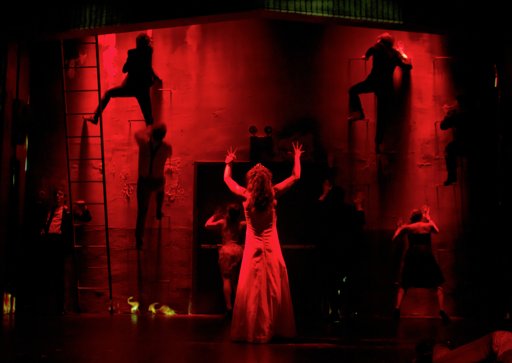
Meanwhile, Mark Kennedy at the Associated Press interviewed Ranson, who told him that she loved De Palma's film, and thinks the story is particularly relevant today. "Really, at its core, it's the story of a girl who's trying to fit in," Ranson told Kennedy. "It's the story of an outsider, which I think everyone can relate to in one way or another. Especially now, with all this bullying. It's kind of a great time to be doing this." Ranson, 22, was not yet born when the original Broadway version happened in 1988. The new version tones down the blood, especially during the prom scene. Regarding the blood, Ranson says, "It'll look good. It'll look real. It's going to be done really beautifully and subtly — artistically, kind of abstract."
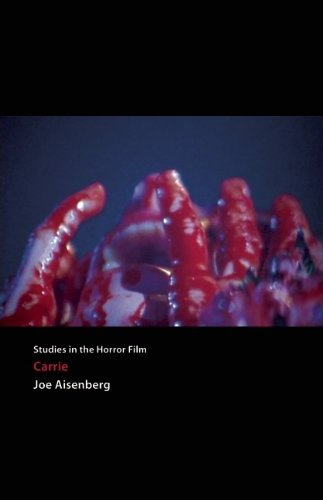 I've been reading this excellent new book by Joe Aisenberg that delves deep into Brian De Palma's Carrie, providing a wealth of details about its creation, its critical reception, how it compares with Stephen King's novel, and so on. Aisenberg has done an outstanding job, looking thoroughly at each scene from the film chapter-by-chapter, and peppering his analysis with insights via original interviews from several members of the Carrie cast and crew, as well as quotes from the many articles written about Carrie over the past 35+ years. The book is part of Centipede Press' "Studies In The Horror Film" series. The 100-copy, limited edition hardcover, signed by author Joe Aisenberg and screenwriter Lawrence D. Cohen, is currently available for pre-order from the Centipede website. A trade paperback edition is aiming for publication in March. The book's appendix includes Aisenberg's full interviews with De Palma and Cohen. I'll post a more in-depth review soon, but if you love Carrie, you'll love this book.
I've been reading this excellent new book by Joe Aisenberg that delves deep into Brian De Palma's Carrie, providing a wealth of details about its creation, its critical reception, how it compares with Stephen King's novel, and so on. Aisenberg has done an outstanding job, looking thoroughly at each scene from the film chapter-by-chapter, and peppering his analysis with insights via original interviews from several members of the Carrie cast and crew, as well as quotes from the many articles written about Carrie over the past 35+ years. The book is part of Centipede Press' "Studies In The Horror Film" series. The 100-copy, limited edition hardcover, signed by author Joe Aisenberg and screenwriter Lawrence D. Cohen, is currently available for pre-order from the Centipede website. A trade paperback edition is aiming for publication in March. The book's appendix includes Aisenberg's full interviews with De Palma and Cohen. I'll post a more in-depth review soon, but if you love Carrie, you'll love this book.




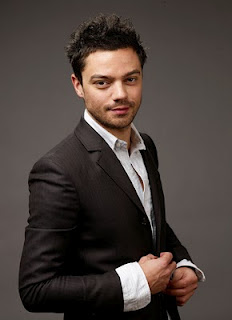




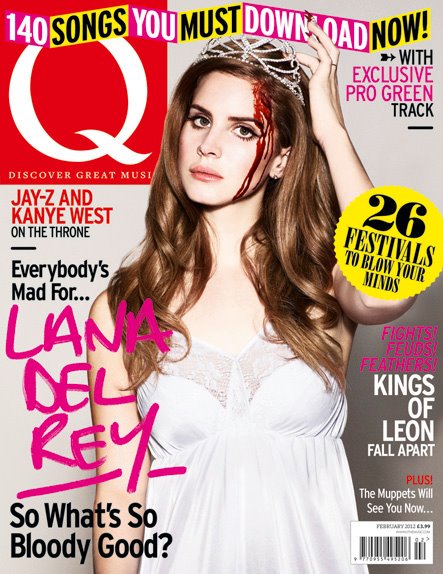 Lana Del Ray graces the cover of the February issue of the British music magazine Q. According to
Lana Del Ray graces the cover of the February issue of the British music magazine Q. According to 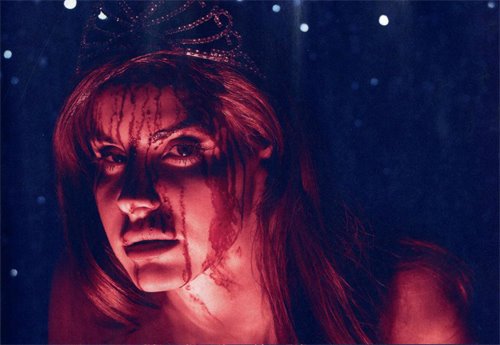
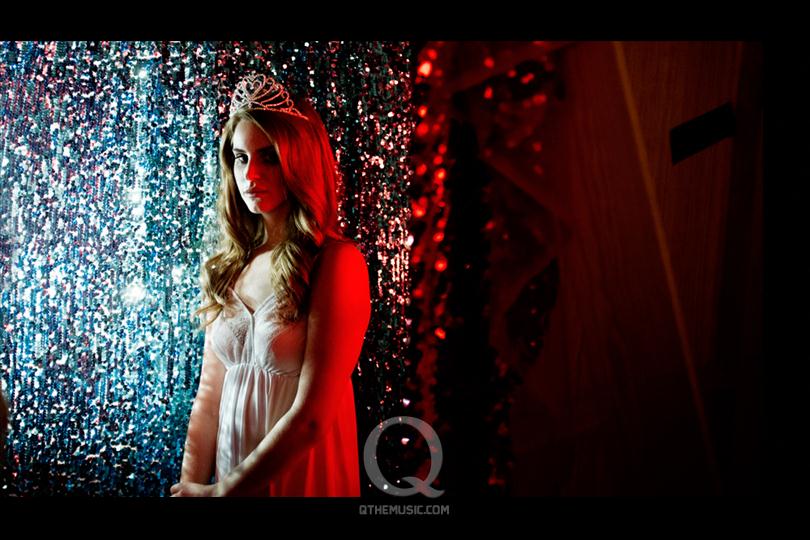

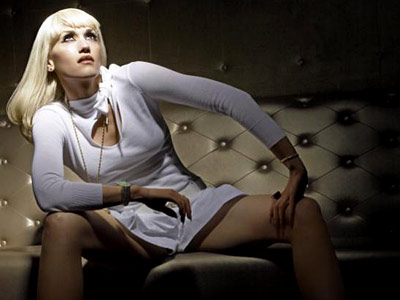
 An article by Patrick Wildermann published today in
An article by Patrick Wildermann published today in  An article yesterday by
An article yesterday by  Brian De Palma had been developing a movie based on the Donald Westlake underworld character
Brian De Palma had been developing a movie based on the Donald Westlake underworld character  The 1986 version of Heat is currently streaming on Netflix.
The 1986 version of Heat is currently streaming on Netflix.